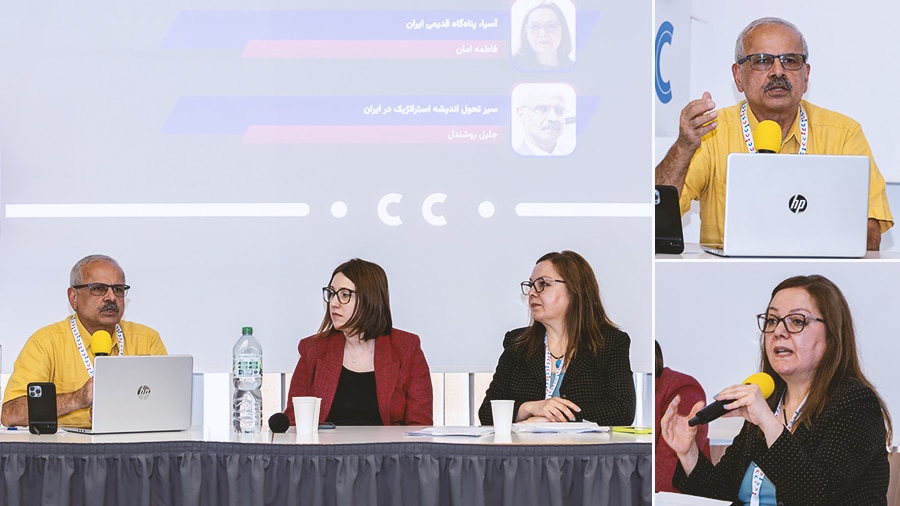Fatemeh Aman
Asia, Iran’s Long-lasting Refuge
Jalil Roshandel
Evolution of Strategic Thinking in Iran
Moderator: Anahita Hosseini
Fatemeh Aman’s analysis focuses on Iran’s pivot to Asia and South Asia as an economic and diplomatic strategy amid strained relations with the West post-1979. Facing decades of economic sanctions and political pressures from Western nations, Iran has increasingly sought closer relations with Asian nations, exploring economic opportunities in these regions to bypass the isolation imposed by Western powers.
Aman details how Iran’s dependence on Asia for economic growth, security partnerships, and political alliances continues to shape its foreign policy trajectory, particularly in light of evolving regional and international developments.
Jalil Roshandel explores the strategic evolution in Iranian thought, arguing that a country’s strategic culture profoundly influences its national security policy. By tracing the impact of national identity on strategic decisions, Roshandel draws from thinkers like Thucydides and Clausewitz, who link strategy with culture.
He discusses how the unique cultural and historical circumstances of Iran, including the Cold War and its “Neither East nor West” ideology after the 1979 revolution, have shaped the nation’s security outlook. Specifically, he examines how Iran’s strategic decisions today—including its involvement in international conflicts, such as in Lebanon, Syria, Iraq, and the ongoing Israel-Hamas war—are rooted in this ideological framework, which prioritizes national security in the face of perceived external threats.


